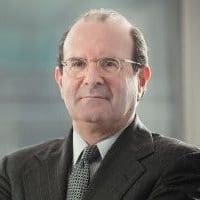
Pearl Certification, a Charlottesville, Va., company that rates homes for energy efficiency, has pledged its support to federal guidelines on designating “zero emissions” buildings.
Under the new definition issued by the U.S. Department of Energy in January, zero emissions buildings would need to be not only highly energy efficient, but also must be powered solely by clean energy, and be free of on-site emissions from energy use.
‘Clear-cut Standards’
“We support this definition because it’s practical and removes ambiguity about how zero emissions are defined,” said Pearl Certification co-founder Robin LeBaron, who is credited with transformative work in affordable and manufactured housing, and residential energy efficiency. “We’re also pleased that the definition makes it possible for low-income homeowners to achieve zero-emissions status,” he added.
Using the new definition within its own rating framework, Pearl Certification has identified several zero-emission and “nearly zero” homes in its network of over 200,000 certified homes.
‘Human Touch’
Pearl Certification, whose backers include Boston-based Clean Energy Ventures, was co-founded in 2015 by Cynthia Adams, a sustainability advocate who previously ran the Local Energy Alliance Program in Charlottesville, and LeBaron. The duo targeted homes because they account for a fifth of greenhouse gas emissions, and also to help drive up the long-term value of homes by making them energy efficient.
In an interview with Citybiz earlier this year, LeBaron and Adams recounted the circumstances in which they started Pearl, saying it emerged after about two years of discussions.
“We’re very much a human organization, not a bunch of techies,” Adams, who now works out of Durango, Colo., told Energy News earlier this year. “That, and never tell a woman she can’t do something. It’s a surefire way to get her to do it,” added Adams, whose LinkedIn profile sports an image of warming stripes showing rising temperatures from 1850, created by British climatologist Ed Hawkins.
5% Price Push
The company’s Green Door app — released in 2020 — guides homeowners on ways to reduce reliance on fossil fuels. Earlier this year, it added a free calculator to help homeowners navigate Inflation Reduction Act tax credits and rebates.
Commercial Real Estate
MacKenzie Companies
Advertising / Media / Communications / Public Relations
Nevins & Associates
Financial Services / Investment Firms
Chesapeake Corporate Advisors
Commercial Real Estate
Monday Properties
Venture Capital
Blue Delta Capital Partners
Internet / Technology
Foxtrot Media
Pearl has certified over 200,000 homes in 49 states and Washington, D.C. Citing independent studies, the company says homes certified by it sell for 5% more than comparable homes, on average.
Since its founding, Pearl Certification has raised $40.8 million, according to Crunchbase. Its backers Clean Energy Ventures, Keller Enterprises and the Felton Group, the family office of Charlottesville, Va.-based hedge fund manager Jaffray Woodriff.
Woodriff, 59, is an alumnus of the University of Virginia. He shot to fame and riches, after co-founding and running the hedge fund Quantitative Investment Management. The firm uses a so-called “black box” statistical approach to make investing decisions. In 2019, Woodriff pledged $120 million to establish a data science school at University of Virginia.

















































